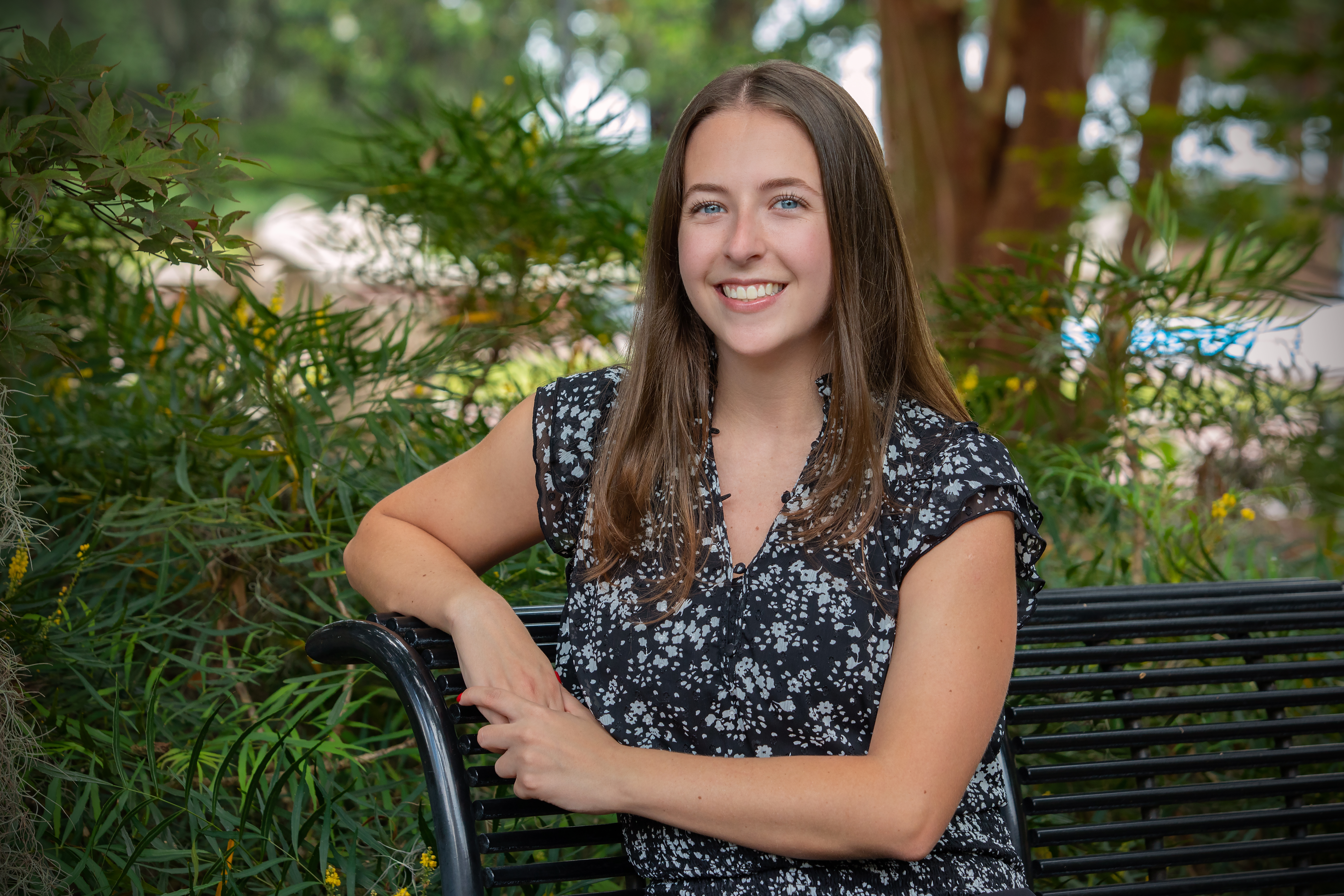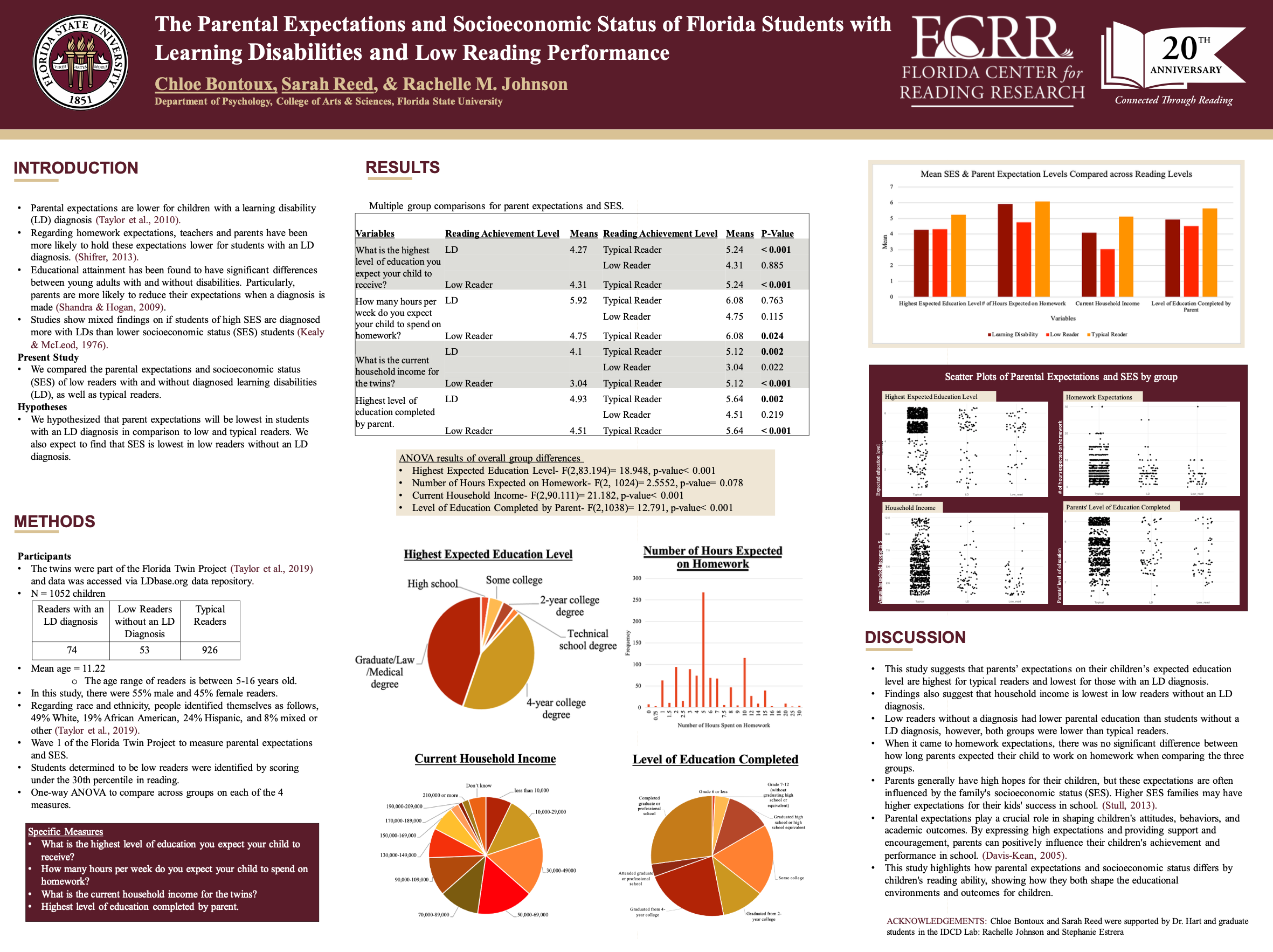Research Symposium
24th annual Undergraduate Research Symposium, April 3, 2024
Chloe Bontoux Poster Session 1: 9:30 am - 10:30 am /91

BIO
My name is Chloe Bontoux and I am a senior majoring in Biological Sciences with a minor in Chemistry. Some of my research interests strongly align with with the research being conducted in the IDCD Hart Lab with twin studies. I have been fortunate enough to receive course credit in Biology and Psychology for my participation in this lab for the past five semesters as a DIS and now a volunteer. After graduation, I plan to continue obtaining patient care experience over the summer while applying to Master's Programs to become a Physician Assistant.
The Parental Expectations and Socioeconomic Status of Florida Students with Learning Disabilities and Low Reading Performance
Authors: Chloe Bontoux, Rachelle JohnsonStudent Major: Biological Sciences
Mentor: Rachelle Johnson
Mentor's Department: Developmental Psychology Mentor's College: College of Arts and Sciences Co-Presenters: Sarah Reed
Abstract
We plan to investigate the parental expectations and socioeconomic status (SES) of low readers with and without diagnosed learning disabilities (LD). Past literature suggests parental expectations are lower for children with an LD diagnosis (Taylor et al., 2010). Studies also highlighted that students of high SES are diagnosed more with LDs than lower SES students (Kealy & McLeod, 1976). This poster will use data from the Florida Twin Project that collected information from twin children. Surveys were completed by parents and were linked with student’s state achievement exam scores. Parent expectations were measured by parent reporting of homework expectations and highest education level they expect their child to achieve. SES was measured by parents’ report of total household income and highest level of parent education. Students were grouped into 3 categories: LD (n= 75), low readers without an LD diagnosis (n= 53), and typical readers (n= 926). Those who scored under the 25th percentile of reading without an LD diagnosis, we considered to be our low reader group. These three groups of students were compared to each other on the four measures of parent expectations and SES, using a Two-Way ANOVA model. We hypothesize that parent expectations will be lowest in students with an LD diagnosis in comparison to low and typical readers. We also expect to find that SES is lowest in low readers without an LD diagnosis. Learning about trends can help inform society about how parent expectations and SES can translate across students of different reading abilities.
Keywords: Learning disabilities, reading achievement, students

